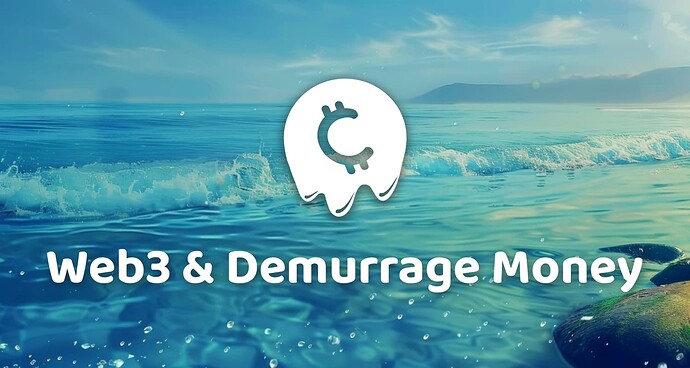The adoption of network coins that are storable across the Web3 industry is a broken system.
I’ve seen people like Vitalik talk about demurrage before but I’ve never seen a reason or sufficient justification to not adopt this approach as the implementation at the base layer for a network and its network coin.
Recently I finished an article exploring the topic of applying demurrage and Web3 - Web3 & Demurrage Money - by George Lovegrove
The article is based on some more in depth analysis that explores how demurrage could be implemented using a network coin tax - https://money.web3economy.io/
Demurrage via a network coin tax could help with creating some of the most impactful and incentive aligned economic systems that have ever existed, a network coin tax could help with:
- Paying node operators - Transaction fees would no longer be required for compensating node operators. Network coin taxes reward active users and coin velocity and incentivise people to use the network coin more productively, helping to prevent stagnation.
- Reduced risk of concentrations in coin ownership - Even a small network coin tax makes it very hard to accumulate large and growing amounts of the network coin tax. Storable network coins with even a small risk-free reward from staking or fully collateralised single asset lending can be easily accumulated and consistently over generations.
- Reducing transaction fees or even eliminating fees entirely - This could be achieved if a sybil resistant solution can be implemented securely at scale.
- Improved network effects - You can apply the network coin tax very granularly so that it maximises the productive usage of the network coin, this could help to increase network effects due to increases in financial market efficiency.
- Generating reliable ecosystem funding - The network coin tax would be collected periodically so ongoing amounts of funding would be available for node operators and ecosystem initiatives.
- Accelerating ecosystem growth - Increasing the network coin tax can result in more income for funding more ecosystem initiatives to feed a growth fly wheel.
- Global public goods funding - Even a small rate of demurrage in a very large ecosystem could generate a very large amount of income, eventually this could fund global public goods once a network is more mature and is one of the leading networks.
I believe demurrage is eventually inevitable as the current implementations of storable network coins are a highly flawed design. Eager to discuss this in as much detail as people like as I’ve been looking far and wide for any good counter arguments to this approach - I am yet to find anything.
Would love to hear from anyone who has thought about this before or what reasons people might have why they think demurrage is not the correct solution for Web3 network coins or for systems of money more broadly. Happy to chat about this in more detail on a video call if anyone is interested in this topic!
